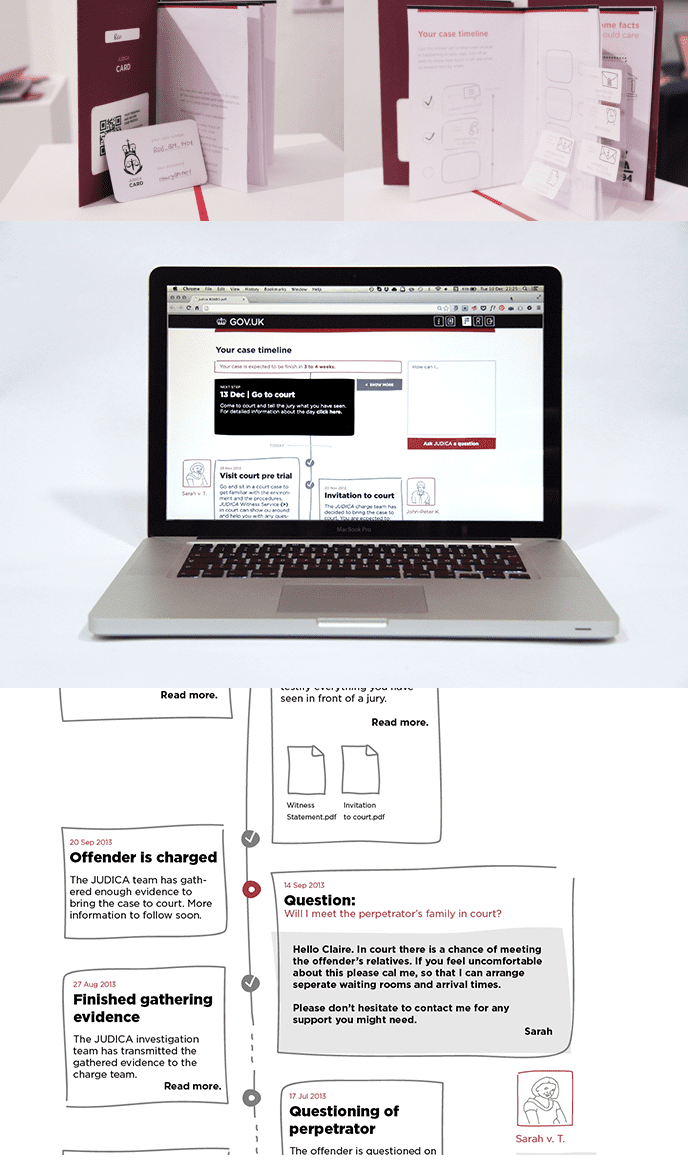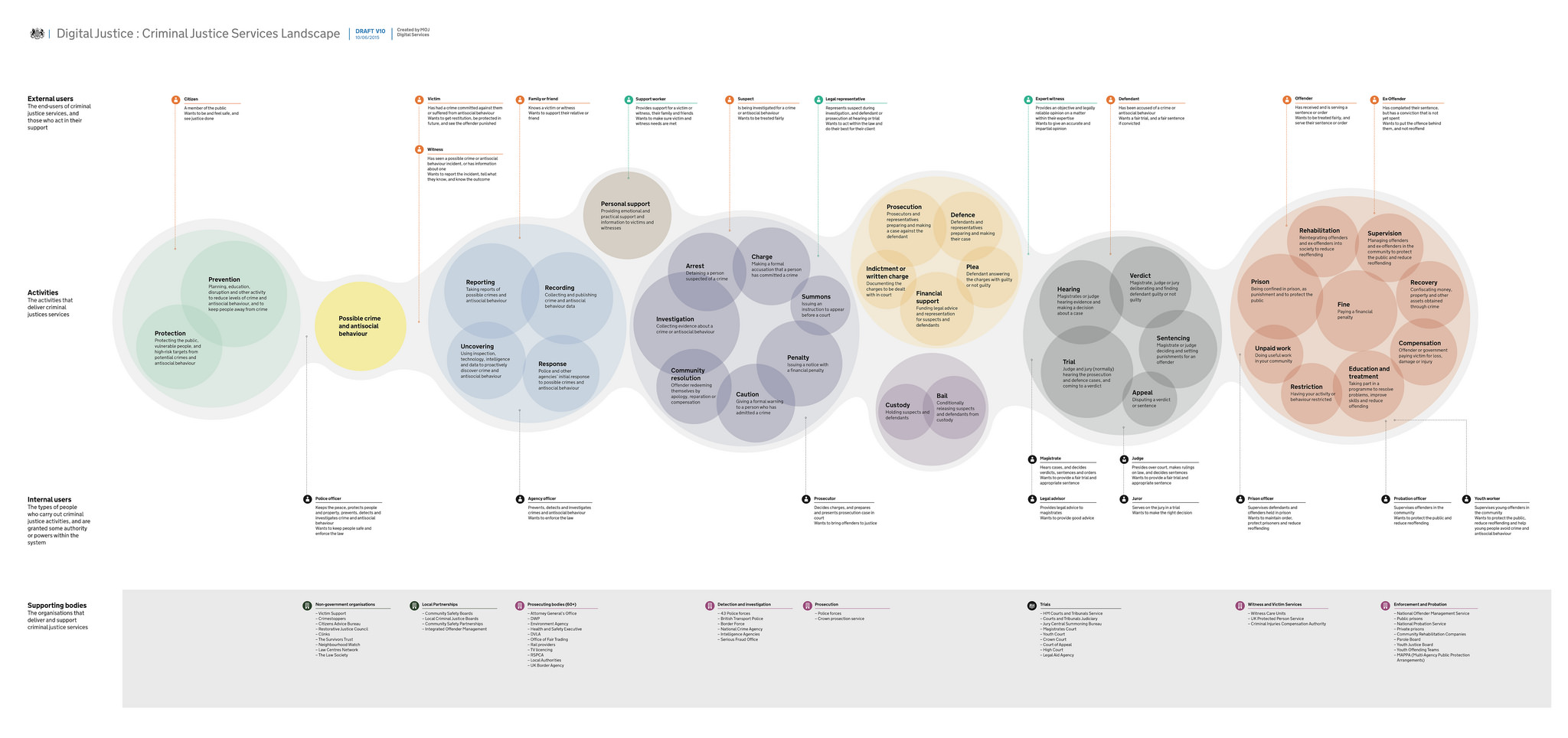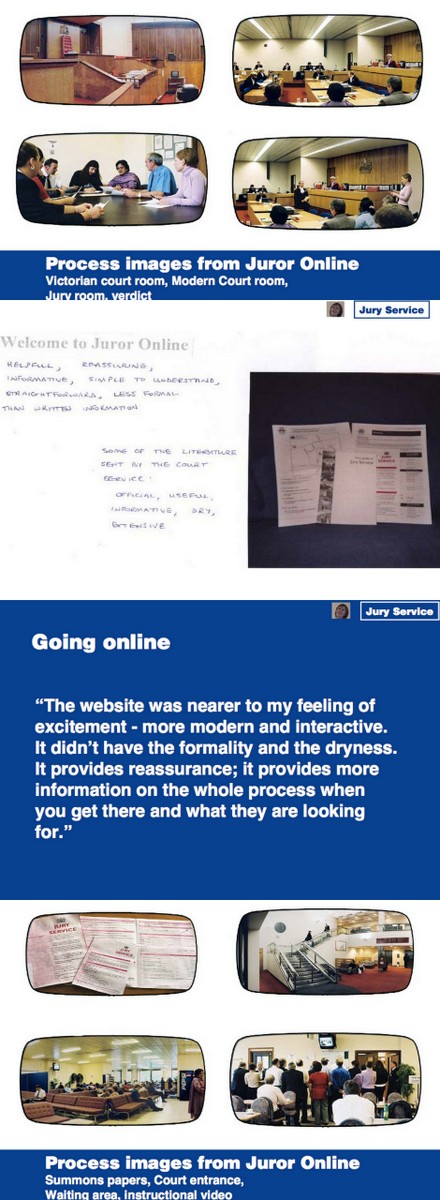In the UK, there was a (seemingly now defunct) service design effort to support people who were called on to be witnesses in a criminal justice case. Called, Judica, it was run in partnership with the UK Ministry of Justice, with a design team through the Royal Academy of Art in the UK, with team members of Julia Schrot, Sebastian Nause-Blueml, and Roman Schoeneboom.
Their project description:
18 per cent of all UK crime witnesses drop out and never go to testify in court because of a distressing and unsatisfying experience with the Criminal Justice System (CJS). This costs the taxpayer £34m every year – but without witnesses justice cannot be delivered.
Judica is a service proposition that aims to create a more human justice system, which consequently reduces witness dropouts. This saves money and helps to deliver justice at a much more frequent rate.
The overarching ‘Judica’ brand, the Judica Passport and the Judica Digital Board give witnesses information and a sense of control, as well as the feeling of being valued and understanding the purpose of standing up as a witness.
The design gives a process guide to the witness, with key dates, questions about safety and expectations, and reassurance about their obligations. The goal is to keep witnesses from dropping out. The components include a passport and a digital guide, each that are personalized to the witness.
Some videos that capture the design work:
The experience of it:
The users’ reactions:




